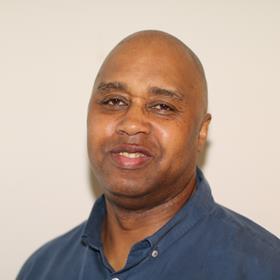The film and TV industry must overcome the stigmas of inclusion as a top priority and address diversity beyond skill set and skin colour, writes Mama Youth Founder Bob Clarke.
Diversity is one of the main talking points in television. Since I founded Mama Youth Project in 2005, diversity has been at the top of the industry’s agenda. But in 2017, I realised tangible impact had not matched up to the talk. The reason is because the industry has been trying to fix a problem that cannot be fixed.

There are diverse groups within diverse groups. It has not helped that the word diversity now has the same meaning as the word “urban”, that is black.
When Mama Youth Project receives a call from a company asking for a “diverse” person, we know they mean someone of colour. That is not what we mean by diversity and we refuse to take part in such nonsense.
“Every one of our trainees have faced challenges which have affected the way they see life and society”
We talk about diversity in its true sense, with an understanding that there are groups within groups; what we are tackling at Mama Youth Project is inclusion.
There are many great organisations trying to get our industry to be more inclusive. The problem is, while you can lead the horse to water, you cannot make it drink.
If a young person is not ready to commit 100%, they will end up letting down those who are trying to support them. For too many years now, companies have attempted to comply with requests and pledges on diversity, taking on people who are not the right person for the job but fit a diversity stereotype.
This becomes a big problem because that person can end up representing the whole of their diverse group.
We also have the problem of companies thinking they are representative, especially when it comes to black people, because they have some black people working in their company.
Hopefully this story from my childhood will tell you what I think about that.
When I was young, there wasn’t a single black officer in the Met police, so they launched a campaign. One day, my friends and I were playing in the street and someone shouted “there’s a black policeman!” With excitement, all of us black kids went running to speak to him. After a conversation with him, our smiles turned to disappointment. Why? Because the only thing we had in common was the colour of our skin. He was from a different class.
At Mama Youth Project, class is a big factor, no matter of your colour. But we also work with middle class young people from all different backgrounds who do not have a contact in the industry.
But why is Mama Youth’s mission to help the unemployables get employed? It’s because every one of our trainees have faced challenges which have affected the way they see life and society.
And it is because of the challenges they have faced - some being quite traumatic – that they have learnt to be resilient.
These are the mind sets that are so underrepresented in our industry. But these guys are young and let’s face it, education is not even providing the right tools and ethics for any work place, let alone an industry like ours which is so demanding in hours and attitude.
Therefore, employees must be trained in work ethics and given the tools to make them an immediate asset to an employer.
We are often asked why we are so successful at finding talent and the answer is recruitment. We do what companies cannot do when recruiting new talent and go beyond the competency-based interview and take each person on an individual basis. We also only take on those we feel are 100% committed to themselves and eager to enter the industry.
Our leadership is based on tough love and zero tolerance of favouritism but of course the nature of the young people we deal with and their individuals experiences means we’ve found conducting our training in a boot camp style the most effective.
Young people who know we care what happens to them, and that we will respect them even though we may come down hard on them. Also, they know there is a light at the end of the tunnel once they finish our boot camp, which is working on a real broadcast commission for Sky One show What’s Up TV.
After completing 14 weeks, a paid placement awaits them from one of our industry partners. Our patron partners are Sky, BBC, Endemol Shine and Procam TV. Along with our patrons, we are seeking to show evidence of tangible change within our industry which is a direct or indirect result of our partnership towards inclusion.
The statistics support our approach: of the young people trained at Mama Youth Project, 98% receive an immediate work placement opportunity and 84% are still working in the industry a year after completing the training boot-camp.
Bob Clarke is the founder of Mama Youth
























No comments yet